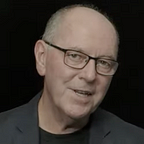Rethinking Educational Assessments: Focus on Ideas, Not Origins
Assessing Student Writing in the AI Era: Why Clarity of Thought Should Trump Detection Efforts
Recent studies from several German universities tested the ability of novice and experienced teachers to distinguish between student-written and AI-generated texts.
The findings were startling: teachers struggled significantly to identify AI-generated content accurately. Novices had a 45.1% success rate, while seasoned educators fared slightly worse at 37.8%. These studies highlight a burgeoning challenge in educational assessments prompted by the rapid advancements in AI writing capabilities.
The Misconception of Detection
The focal point of the German studies was the teachers’ ability to detect AI-generated content. This endeavour proved difficult and unreliable. Teachers were frequently incorrect and also overly confident in their judgments. This overconfidence and a significant misclassification rate underscore a critical flaw in our approach to educational assessments in the AI era. Relying solely on the text’s origin (human vs. AI) as a marker of validity is unwise and untenable.
A Shift Toward Evaluating Ideas
The essence of good writing and effective communication lies not in who or what produces the text but in the originality and clarity of the ideas presented. This perspective shifts the focus from a fruitless detection endeavour to a more meaningful content quality evaluation. Instead of investing in increasingly sophisticated AI detection tools, which have also been shown to flag student texts as AI-generated falsely, educators should focus on developing and assessing students’ ability to generate original, clear, and insightful ideas.
The Role of AI in Education
AI’s integration into educational settings is inevitable and not inherently harmful. Through personalized feedback and support, AI can significantly enhance learning experiences. However, this integration requires educators to realign assessment strategies. We must move towards assessment frameworks emphasising critical thinking, problem-solving, and creativity — skills AI cannot fully replicate.
Rethinking Assessment Strategies
To adapt, educational assessments must evolve to include a combination of written assignments and oral examinations or presentations. Such a hybrid approach allows educators to assess not only the written output but also the depth of understanding and the ability to articulate thoughts verbally. This method ensures a comprehensive evaluation of student skills. It mitigates the risk of over-reliance on potentially AI-generated assignments.
Educational Implications and Recommendations
- Enhance AI Literacy: Teachers and students should have a foundational understanding of AI capabilities and limitations. This knowledge will demystify AI and integrate it as a tool rather than view it as a threat.
- Revise Evaluation Criteria: Assessment criteria should be revised to emphasize the clarity and originality of ideas rather than the mechanical aspects of writing that AI can easily replicate.
- Promote Ethical Use of AI: Educational institutions must foster an environment that emphasizes academic integrity and the ethical use of AI tools, preparing students to use technology responsibly.
The German studies reveal a crucial turning point in educational assessment strategies. As AI evolves, our focus must shift from attempting to detect AI involvement to fostering and evaluating our students’ unique cognitive abilities. By emphasizing ideas' quality and articulation, we prepare students to succeed academically and thrive in a technologically advanced society where AI is a collaborator, not a competitor.
About the author: Greg Twemlow, Founder of Future Skills Studio.
Greg Twemlow: Sharing what I’ve learned from my career of 35 years as a citizen of the world, parent, corporate executive, entrepreneur, and, since 2018, CEO of Future Skills Studio, focused on experiential learning programs for young people.
